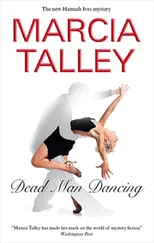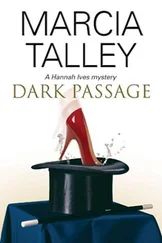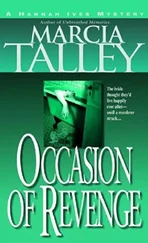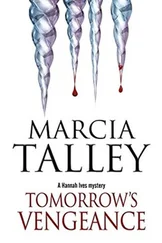‘Lynx Entertainment?’
Jack scowled. ‘The dressmaker sends me the bill, young lady. That frock cost me four pounds, eleven shillings and five pence.’
‘What’s that in real money?’ Melody wanted to know.
Jack’s forehead furrowed as he considered his daughter’s question. ‘Allowing for inflation over the past two and a half centuries, you’re gallivanting around in a $700 designer original.’
Melody, who once confided that her normal taste in clothes ran to Forever21 and Topshop, gave her father the satisfaction of emitting a delighted gasp of surprise. ‘No way!’
‘Best you remember that, young lady.’
I wondered what kind of a dent my ball gown had put in his majesty’s exchequer, but wisely decided not to ask. Lord knows I’d tried to get the hang of British money – twenty shillings to a pound, twelve pence to a shilling had been my mantra. But, a pound is twenty shillings, except when you add a shilling and it turns into a guinea, and don’t get me started on farthings, quids, bobs and groats. And there’s no Tylenol here when I need it.
Melody bent over her work, squinted, wrapped the embroidery cotton several times around her needle, took careful aim, and plunged the needle into the linen, drawing the thread slowly down through the cloth and back up again. ‘Like this?’ she asked, turning the work in my direction for inspection.
‘Exactly like that.’ Out of the corner of my eye, I saw Jack shift uncomfortably from one silver-buckled shoe to the other. ‘Well then, ladies, I’ll bid you goodnight.’
‘Night, Papa,’ Melody muttered without looking up.
‘Goodnight, Mr Donovan,’ I said, opening my book to the page where I’d left off: ‘“I saw two farmers’ daughters at church the other day, with bare necks. I protest they shocked me. If wenches will hang out lures for fellows, it is no matter what they suffer.”’
From the corner by the fire, Amy said, ‘It holds up well, doesn’t it, Tom Jones ? Although I have to confess, I much prefer the movie.’
‘Bare necks. How shocking!’ Melody laid her embroidery down on her lap. ‘Well, aren’t you going to go on? Read, Hannah, read.’
‘This is the end of my third week on the job, and it’s back-breaking work. Mopping the hallway floor this afternoon took simply ages, and then along comes Mr Donovan and the little brat with their muddy boots and I had to mop it all over again.’
French Fry, housemaid
Maybe it was too much work, or lack of sleep, or the late September heat wave that had settled like a hot, wet towel over Annapolis that week, but early in the twenty-four hours leading up to George Washington’s visit, I became anxious about the menu. What would the Father of our Country like to eat? Did he have any allergies? What about his dentures? Would the food be soft enough? Out in the garden, helping Karen pick young, tender spinach, I was seized by the irrational thought that I should Google our first president, check out Wikipedia, visit the Mount Vernon website, looking for clues to the great man’s dietary preferences.
A visit to the well and a ladle of cool water later, I had come to my senses. He’s just an actor, you idiot, I told myself. He probably drives a Porsche, has a full set of cavity-free teeth and enjoys eating blooming onions at Outback.
Fortunately Alex Mueller had taken the children off our hands. For most of the afternoon, Melody and her little brother, Gabriel, as well as the four homeschoolers, had been occupied with dancing lessons at Brice House next door, practicing for Saturday’s after-dinner entertainment in honor of Colonel Washington.
Derek and Chad had disappeared, too, accompanying Jack Donovan to Middleton Tavern – directly across from the Market House – where he would be joining a group of socially-prominent Annapolitan men in re-enacting a meeting of the ancient and honorable Hominy Club. The club had actually disbanded in 1773 – possibly due to political differences – but Jud Wilson must have felt it too important a part of the Patriot House story not to be re-enacted, so he’d slipped the date. Since 1750, when Horatio Middleton first opened it as an ‘Inn for Seafaring Men,’ Middleton’s had been a focus of Annapolis social life, and it still was. Jack had been down at Middleton’s since noon, and if the punch flowed as freely that day as it had back in 1773, he would be struggling home long after dark on the steadying arm of Jeffrey Wiley, his trusty valet.
In the meantime, French, our housekeeper, was tasked with scrubbing the floors – upstairs and down – while Amy was sent to the dining room to polish the silver. That left Karen and me to manage things in the kitchen. Most of the baking had already been done, except for a butter cake. Karen put another log on the fire, then set a clean bowl on the table, tossed a generous handful of butter into it and began creaming it with a wooden spoon.
‘While you do that,’ I said from my perch on a kitchen stool, holding a cookbook, ‘let me see if I can find a recipe for roast pig.’ The book had no index, so I began to leaf through the pages. I found instructions for boiling a calf’s head – ‘serve the brains mashed or whole, and the tongue slit down the middle’ – and fricasseeing lambstones, but it took several minutes of browsing, puzzling over unfamiliar ingredients such as sounds, charr and pluck, before I found it. ‘To roast a pig,’ I began.
Karen was using her hands to work flour into a pound of butter. ‘Uh huh.’
‘Spit your pig and lay it to the fire. That seems simple enough. Oh, wait a minute, before you do that, you’re supposed to roll some sage, salt and pepper into a piece of butter the size of a walnut and sew it up inside. Actually, that sounds pretty good.
‘While the pig’s cooking, you keep basting it with flour,’ I continued. ‘Then, it goes on to say… Oh, yuck! You’re supposed to keep flouring it until the eyes drop out.’
‘Excuse me while I barf.’ Karen cracked an egg, used the shells to separate the white from the yolks, then dropped the yolk into the bowl. ‘There! That’s the last of the eggs.’ She picked up a spoon and started stirring the batter vigorously.
I slammed the book shut. ‘When this is over, I swear I’m going to become a vegetarian. If you’re going to eat meat, it should come cut up and wrapped in plastic and not be so…’ I paused, searching for the right word, ‘… so recognizable.’
While Karen was stirring the cake batter, Dex came in from the garden, staggering under an armload of firewood. He dropped the logs next to the fireplace, then began to stack them on top of the few logs that still remained after our marathon baking session.
‘I hate to see a little guy work so hard,’ I said. I lowered my voice so that Dex couldn’t hear me. ‘He should be in school with the other kids, or taking dancing lessons, not doing chores.’
Dex balanced the last log on top of the pile, then turned to me, wiping his hands clean on his breeches. ‘Mama says that my great-great-great-great grandma was a slave.’ He counted the ‘greats’ out on his fingers.
‘I think Dex is gaining an appreciation for the sacrifices his ancestors made for him,’ Karen said with a smile. ‘It’s true. Her name was Nellie Moore, and she was a slave on Walnut Creek Plantation in South Carolina.’ She stopped beating for a moment, stuck a finger in the batter, tasted it. ‘I know that I’m only here today because somebody like Nellie had the will to survive.’
‘I wonder what Nellie would have thought seeing you now, Karen. Actually volunteering to dress the way she did, work your fingers to the bone like she did.’
Читать дальше












